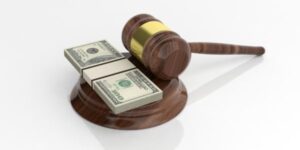Bankruptcy Attorney Bolton CT

A trusted bankruptcy attorney Bolton, CT residents can count on, from The Law Offices of Ronald I. Chorches knows that filing for bankruptcy might be the right thing for you. Declaring bankruptcy offers you and your family a substantial level of autonomy. It could be the singular path through which you regain your financial independence and start anew with a clean slate.
How do I know which kind of bankruptcy to file for?
When initiating bankruptcy proceedings, you might contemplate which type of bankruptcy fits your situation. In most cases, your choice will be either Chapter 7 or Chapter 13 bankruptcy.
Chapter 7 Bankruptcy. Opting for Chapter 7 bankruptcy provides you with an opportunity for a new beginning by enabling you to settle your debts. This approach necessitates relinquishing a significant portion of your assets to satisfy creditors. For this reason, you may be unable to retain ownership of your home or vehicle. However, you’d like to rapidly settle your financial obligations, this could be the best choice of bankruptcy.
Chapter 13 Bankruptcy. Through Chapter 13 bankruptcy, you can collaborate with your bankruptcy attorney to formulate a structured gradual repayment plan of your debts. Typically spanning a period of three to five years, this plan permits you to retain possession of your assets. Furthermore, if concerns regarding foreclosure on your home arise, it’s plausible to safeguard your residence.
No need for concern regarding the choice. Once you join forces with an attorney, they will meticulously assess your financial situation, scrutinize your liabilities, and evaluate your assets. Their expertise will guide the identification of the suitable bankruptcy option for which you qualify, and they will assist you in devising a comprehensive plan.
Business Bankruptcy
If you are a small business owner who is facing financial difficulties, you may be thinking about filing for bankruptcy. In this situation, a bankruptcy attorney Bolton, CT clients trust may recommend filing for Chapter 11 bankruptcy. Chapter 11 bankruptcy is a legal process primarily designed for businesses. It is a form of reorganization bankruptcy that allows a financially distressed entity to restructure its debts and operations while continuing to operate its business. Importantly, the plan must be approved by the creditors and the bankruptcy court. This chapter provides a more flexible approach than Chapter 7 (liquidation) or Chapter 13 (individual debt adjustment) bankruptcies.
Things You Should Know Before Filing for Bankruptcy
Bankruptcy is a last resort
Bankruptcy is often considered a significant financial decision and is generally recommended as a last resort after other options have been explored. In order to file for bankruptcy, you need to prove that you have exhausted the other options available to you.
You are required to complete credit counseling prior to filing
Before filing for bankruptcy, credit counseling is required. If you’re unsure about locating an Internal Revenue Service-approved credit counseling agency, you can consult your bankruptcy lawyer for guidance on reputable options.
Some assets are exempt from bankruptcy
Contrary to common perception that bankruptcy entails losing everything, this is not universally true. The majority of retirement funds and pensions are typically safeguarded and remain unaffected throughout the bankruptcy proceedings.
Joint accounts are not exempt from bankruptcy
In the case of a joint account, such as one shared with a spouse, parent, or child, that account can potentially be utilized to fulfill financial obligations during bankruptcy proceedings.
Some loans do not disappear after bankruptcy
Most loans are covered under bankruptcy law, but some loans, like most student loans, are not covered. Chances are even if you successfully complete the bankruptcy process, you will still have to pay back any student loans you have incurred.
Once proceedings begin, you will have “automatic stay” protection
An automatic stay means that while the bankruptcy proceedings are underway, creditors will not be able to take legal actions against you. Although not guaranteed, going through the bankruptcy process can limit the legal actions creditors can bring against you even after the proceedings have ended.
Filing for bankruptcy is not free
Although it may be counterintuitive, filing for bankruptcy does cost money. However, if this is the right decision for you, do not let the financial cost be a barrier. There is legal aid available if you qualify that can help you cover the fees.
Bankruptcy is public
Bankruptcy proceedings are made public. For this reason, if there are people in your life you want to tell, you may consider discussing it with them before the proceedings are finalized.
Bankruptcy decisions are final
In most cases, during bankruptcy proceedings, creditors settle for less money than was actually owed. After the process has been completed, creditors cannot request more money.
Do You Have Bankruptcy Questions?
If you’re still uncertain about your eligibility for bankruptcy or the specific type that suits your situation, don’t hesitate to reach out to our team. Prepare a list of your debts and assets, and bring a copy of your pay stub. To learn more about what we can do for you, please do not hesitate to contact The Law Offices of Ronald I. Chorches today to schedule a free review of your case.
Our service area also includes Bridgeport, Waterbury, and Middletown.
